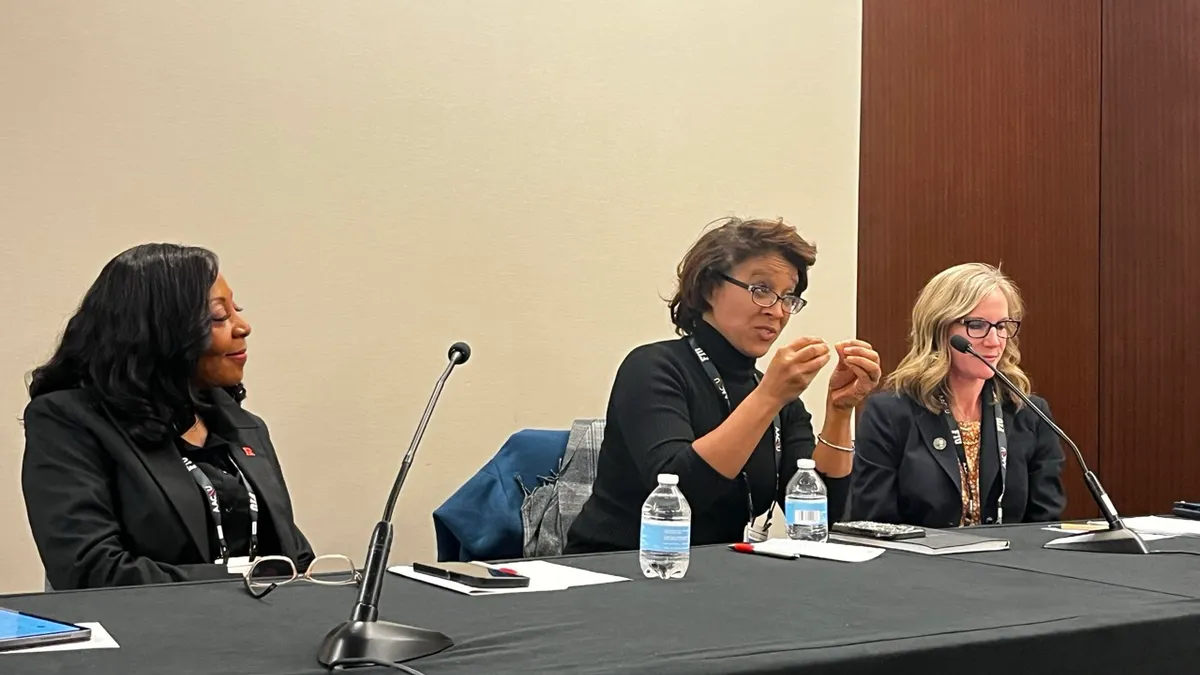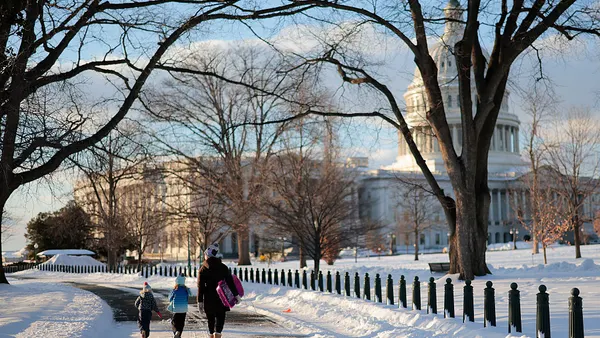Dive Brief:
- Many U.S. colleges are experiencing declines in undergraduate and graduate enrollment amid tightening visa policies, according to a new study released by NAFSA: Association of International Educators and other groups.
- U.S. colleges reported a 6% average drop in new international bachelor’s enrollment and a 19% drop in new international master’s enrollment for the fall. Of some 200 surveyed U.S. institutions, 48% saw declines in their international bachelor’s students, and 63% experienced a drop-off in international graduate enrollment.
- Canada suffered even more dramatic declines, while international student enrollment rose in Asian and European countries, according to the NAFSA study. Both U.S. and Canadian institutions primarily blamed restrictive government policies for the decline.
Dive Insight:
Since taking office, the Trump administration has launched a suite of aggressive policies that have made it difficult for many international students to study in the U.S.
Among other moves, dramatically slowed visa processing raised concerns this summer that tens of thousands of students might be stymied from coming to the U.S. for college. On top of that, the administration has revoked thousands of visas for international students already studying here and proposed a four-year cap on student visas, which could hit doctoral students particularly hard.
In the U.S., restrictive government policies were by far the No. 1 obstacle to international enrollment, with 85% of surveyed colleges citing them in the NAFSA study. That’s up from 58% of colleges that said the same in 2024.
“We are navigating one of the most dynamic moments in international education, driven in no small part by shifts in U.S. visa and immigration policy,” NAFSA Executive Director and CEO Fanta Aw said in a statement. “The ripple effects of these policy changes are being felt across campuses and communities around the world.”
The distant No. 2 concern was tuition and living costs, with 47% of U.S. respondents citing them as an obstacle this year.
As international enrollment declines take a toll on college finances, 36% of colleges surveyed by NAFSA said they plan to expand into new markets to adapt. Another 28% are planning budget cuts, and 26% intend to expand online programming to gin up enrollment.
To be sure, the U.S. isn’t the only country where government restrictions weigh on foreign enrollment. In Canada — where new international bachelor’s and master’s enrollment fell by 36% and 35%, respectively — 90% of polled colleges listed restrictive policies as the top obstacle to enrollment. European colleges, excluding those in the U.K., also listed restrictions as the primary obstacle.
The survey was conducted in October and drew on responses from 461 institutions across 63 countries, including 201 U.S. colleges.
The NAFSA study adds to mounting evidence of international enrollment drop-offs this fall. A survey of more than 800 colleges found that their international enrollment declined overall by 1% in fall 2025, with their graduate student enrollment plummeting by 12%, per the annual Open Doors report from the Institute of International Education and the U.S. Department of State released earlier this month.
New international enrollment fell even more overall — by 17% — this fall, according to the Open Doors survey.















